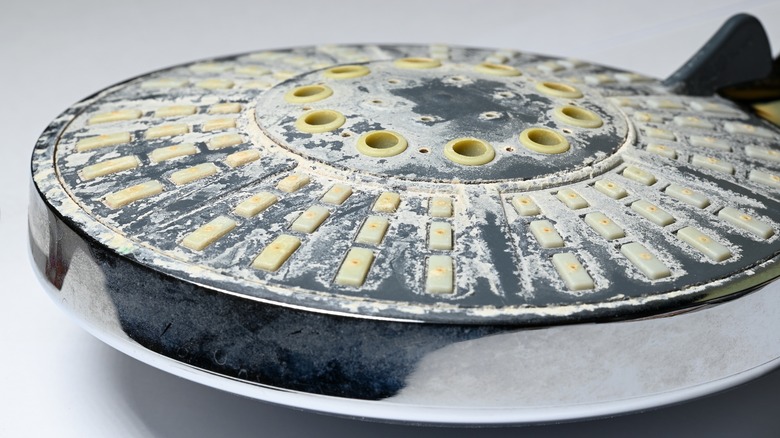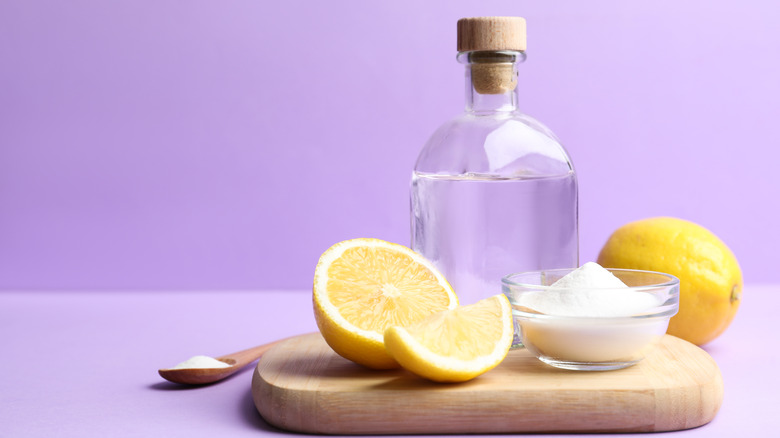How To Easily Remove Calcium Deposits From Your Showerhead
Do you notice a gross scaly buildup on your water fixtures? Do your hands feel slimy after you wash them? Do your clean dishes dry with spots on them? You likely have hard water. The US Geological Survey states that water hardness is mostly determined by the amount of calcium and magnesium dissolved in it. But why is this a problem for some areas and not so much for others? While hard water is experienced globally, HydroFlow U.S.A. reports that about 85% of the United States deals with its effects.
Essentially, water that flows through areas with high mineral content collects calcium, magnesium, lime, silica, and such. As the water evaporates, these minerals end up white or grayish, crusty, hard buildup on bathroom fixtures, especially showerheads. Water Defense explains that as rain falls from the clouds and soaks into the soil, it mixes with groundwater and collects minerals that are easily deposited onto our plumbing fixtures. To break this cycle, you'll need to use a water softener or other filtration system. Removing buildup that has already occurred requires work, and the best way to prevent it is by cleaning your showerhead weekly.
Breaking down calcium deposits
Plumbing Kings describes several options for cleaning scale from fixtures, including products like CLR (calcium, lime, and rust remover) and muriatic acid. However, each of these contains harsh chemicals that are hazardous to mucous membranes (eyes, lungs, etc.). To use these cleaners, read the labels thoroughly and use them exactly as indicated. Proper ventilation and safety precautions must be followed.
Safer, equally effective options include vinegar or fresh lemon juice, and even baking soda. According to Step to Health, white vinegar removes stains and mineral buildup, and one way to treat the problem is to put vinegar in a sandwich bag with a zipper seal, which you then place around the showerhead so that the liquid fully engulfs the crusty area. Let the showerhead soak for at least 10 minutes for light scale and up to an hour for heavier buildup. Adding some baking soda to the vinegar for tougher deposits will produce a quick bubbling reaction that may loosen the accumulation. Wipe away any remaining crud with a cloth.
A lemon juice and baking soda mixture is also a great cleaner that can remove minor buildup. First, create a paste by squeezing two big lemons and adding the juice to 1 cup of baking soda until a paste has formed. Then, apply the blend to the problem area and let it sit for about 30 minutes before wiping it away. This method keeps the scale to a minimum if repeated regularly, says Step to Health.

